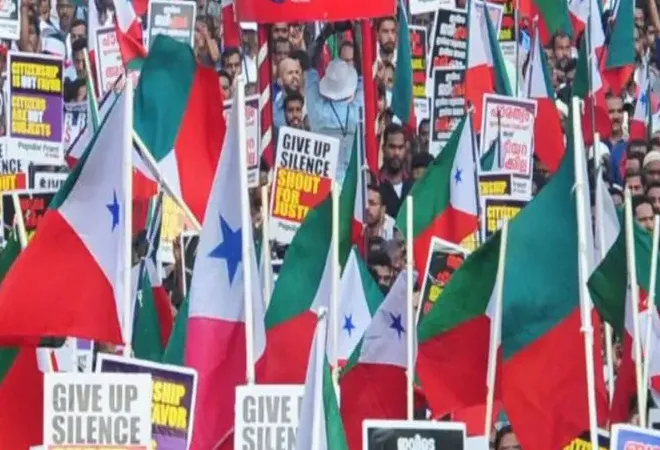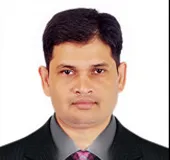
As the crackdown on the Popular Front of India (PFI), an
Islamist radical organisation, continues following the proscription of the outfit by the Government of India on 27 September 2022,
writings claiming the return of the banned outfit have emerged in Dakshina Kannada district in Coastal Karnataka. Such a development raises the pertinent question of whether a politico-legal action like banning an outfit actually curbs the growing radicalisation in India. The PFI, arguably the most radicalised Islamist outfit, operated for close to three decades; it penetrated many areas and took multiple forms as it formed alliances with like-minded groups before it was eventually proscribed by the government. The PFI and its associates (read front organisations) were banned after a
series of allegations were made that the outfit was engaged in ‘unlawful activities’ that were prejudicial to the ‘integrity, sovereignty, and the security of the country’. The
official explanation for the ban cites the PFI’s alleged links with outlawed Islamist organisations such as the Students’ Islamic Movement of India (SIMI); the Bangladesh-based terror organisation, Jamat-ul-Mujahideen-Bangladesh (JMB) and the Islamic State of Iraq and Syria (ISIS). As these allegations are yet to be proved in a court of law, it is crucial to explore the inception and the activities of the PFI to understand the implications of the ban.
The PFI and its associates (read front organisations) were banned after a series of allegations were made that the outfit was engaged in ‘unlawful activities’ that were prejudicial to the ‘integrity, sovereignty, and the security of the country’.
The inception of PFI
An overlooked aspect when it comes to understanding the genesis of the PFI has been its ideological roots. Arguably, the PFI is
quintessentially a Jamaat-e-Islami-Hind (JeI-H) organisation. The PFI, its multiple forms, and the radical and violent activities that it carried out before it faced proscription can be traced back to the end goal of Maulana Mawdudi, the top ideologue of the JeI-H—that of establishing political Islam. PFI’s roots can also be traced back to the outlawed SIMI, a radical Islamist students’ outfit of the JeI-H. Former SIMI members, who were over the age of 30 and who used to operate within the Islamic Sevak Sangh (ISS), a Kerala-based Islamist organisation, went on to form the National Democratic Front (NDF) in 1993 once the ISS was banned.
The NDF, though limited to Kerala, was also involved in spreading radical Islam and
conducting violent activities. With the ban of SIMI in 2001 and with the NDF being recognised as a
violent organisation, the members of the latter felt a need to form a new organisation to avoid the surveillance of law enforcement agencies and to also avoid a possible ban. Before the formation of the PFI in November 2006, the members of the erstwhile NDF carried out two important meetings (25-26 January 2004 in Bengaluru and November 26-27, 2005 in Hyderabad) with like-minded people under the banner of the South India Council. The three radical Islamist organisations that came together to form the PFI were the NDF from Kerala; Manitha Neethi Pasarai from Tamil Nadu; and the Karnataka Forum for Dignity (KFD) from Karnataka. The PFI also carried out its activities through several like-minded organisations in other states of India. These include The Citizens’ Forum in Goa, Nagarik Adhikar Suraksha Samiti in West Bengal, Community Social and Educational Society of Rajasthan, Karnataka Forum of Dignity (KFD) in Karnataka, Liong Social Forum in Manipur, and the Association of Social Justice in Andhra Pradesh.
The three radical Islamist organisations that came together to form the PFI were the NDF from Kerala; Manitha Neethi Pasarai from Tamil Nadu; and the Karnataka Forum for Dignity (KFD) from Karnataka.
PFI and its activities
An important aspect of the PFI and its associates is that none of them use any Islamic title in their organisations’ names. Such a thing is purposefully done to legitimise the PFI’s official claim as a “neo-social organisation” working for the upliftment of the downtrodden. Accordingly, the PFI, while carrying out its radical Islamist activities,
also tries to forge alliances with non-Muslim organisations to avoid any surveillance from state agencies. The front organisations through which the PFI carried out its radical activities are the Social Democratic Party of India (SDPI), Campus Front of India (CFI), National Women’s Front (NWF), Rehab India Foundation (RIF), and the Empower India Foundation (EIF). Arguably one of the most well-organised radical outfits, the PFI has ensured that it leaves no trace or evidence of its activities behind. Though its activities have come under a serious scanner following its
alleged role in the anti-CAA movement, the Delhi riots in 2020, and the manufacturing of a movement supporting wearing hijab inside educational institutions, the PFI had already been under surveillance for a long time. The Kerala government has been alleging the involvement of PFI in multiple cases such as
the cutting of the hand of a teacher (July 2010) over an alleged insult of the Prophet Muhammed and the political murder of RSS and Communist party members in Kerala.
The former Chief Minister of Kerala (V S Achuthanandan) had alleged that the PFI is ‘making attempts to Islamise the state’. Similarly, the law enforcement agencies of Kerala have also exposed the alleged role of the PFI in multiple violent activities. The role of the PFI in manufacturing the Hijab row and the killing of Hindu organisation members in Karnataka, arguably, triggered the government to crack down on the outfit by factoring in its history of violent activities since 2006 before finally banning the organisation altogether.
The Kerala government has been alleging the involvement of PFI in multiple cases such as the cutting of the hand of a teacher (July 2010) over an alleged insult of the Prophet Muhammed and the political murder of RSS and Communist party members in Kerala.
Will the ban curb religious radicalism?
While an all-India crackdown on the PFI and its associate organisations is taking place following the ban, the question arises as to whether a mere ban on an organisation can curb radicalism. The answer to this is a clear no. Drawing from the PFI’s own past record of morphing from one organisation to another, one would not be surprised to see a new incarnation of the same organisation in the future. Thus, while the politico-legal action of banning and cracking down on a radical outfit is very much needed to curb violent activities, the solution to radicalism lies in investing at the social level. Following the ban, the government must reach out to those communities from which these radical outfits often garner their support, to expose and make them aware of the nefarious activities of these organisations. Moreover, government agencies must work towards assuring the protection of minority communities from any attempts at victimising and marginalising them; this would help in curbing the very foundation of radicalism. In the absence of comprehensive measures at the social level, the banned outfit will resurface and allege being targeted for speaking up for the downtrodden to further its radical agenda.
The views expressed above belong to the author(s). ORF research and analyses now available on Telegram! Click here to access our curated content — blogs, longforms and interviews.



 As the crackdown on the Popular Front of India (PFI), an
As the crackdown on the Popular Front of India (PFI), an  PREV
PREV


